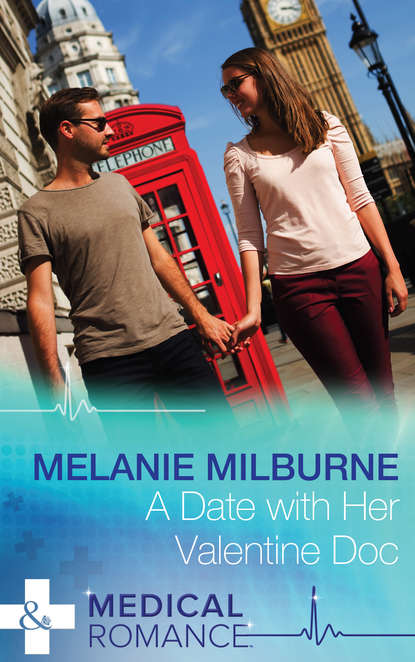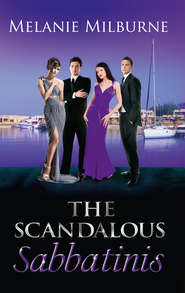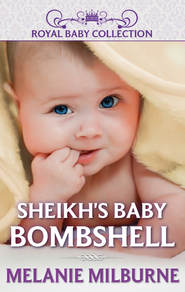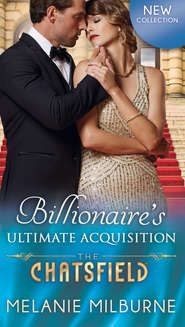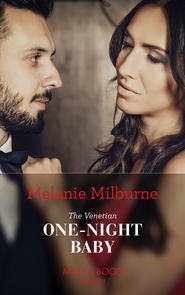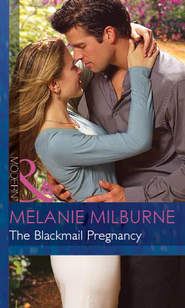По всем вопросам обращайтесь на: info@litportal.ru
(©) 2003-2024.
✖
A Date with Her Valentine Doc
Автор
Год написания книги
2019
Настройки чтения
Размер шрифта
Высота строк
Поля
I guess they were all right in the end.
The chance to get rid of the postcard escaped me when Jill, the ward clerk, came in behind me with a couple of residents and chorused, ‘Here’s the blushing bride!’ I was blushing all right. Big time. Looking at that sea of smiling faces, I didn’t have the heart or the courage to tell them the wedding hadn’t gone ahead. I smiled inanely and made some excuse about seeing an elderly patient and scooted out of there. I had only been at St Iggy’s a little less than a year so I didn’t know anyone well enough to consider them close friends, although some of the girls were really nice, Gracie McCurcher—one of the intensive care nurses—in particular.
And as to anyone finding out on social media, I’d closed my profile page a couple of years ago after someone had hacked into my account and used my image in a porn ad. Try explaining that to your workmates, especially the male ones.
My home village in Yorkshire is a long way from London—in more ways than one, but more on that later—so I figured it didn’t matter if I didn’t tell everyone I’d got dumped the night before the wedding. Cowardly, I know, but, to tell you the truth, I was still trying to get used to being single. Andy and I were together—not actually living together, because I’m idiotically old-fashioned, which is ironic when you consider my unconventional upbringing—for five and a half years.
I know what you’re thinking. How could I not have known he wasn’t in love with me after all that time? I’m not sure how to answer. I loved him so I expected him to love me back. Naïve of me perhaps but that’s just the way I’m made. But maybe on some level I’d always known he was marking time until someone better came along.
I stood by the bedside of Mr Simmons, a long-term elderly patient, on that cold and dismal January morning and watched as he quietly slipped away. There is something incredibly sacred about watching someone die. Mind you, it’s not always peaceful. Some struggle as if they aren’t quite ready to leave their loved ones. Others slip away on a soundless sigh the moment their absent loved one arrives. It’s as if they’ve waited until that moment of contact to finally let go. I’ve lost count of how many deaths I’ve seen. But I guess that’s one of the downsides of working in ICU. Not everyone walks out with a smile on his or her face. Not everyone walks out, period.
I can cope with the death of an elderly person like Mr Simmons. I can even manage with a middle-aged person’s death if they’ve lived a full and happy life and are surrounded by the people they love. It’s the kids that get me. Babies in particular. It seems so unfair they don’t get a chance to have a go at screwing up their life like I’ve screwed up mine.
Mr Simmons’s grandchildren and great-grandchildren had been in the night before and said their final goodbyes. His wife died a couple of years ago so there was only his son and daughter by his bed. I watched as they each kissed his forehead, and then stroked his papery hand, and each shed a tear or two for the long and happy life that was coming to a close.
ICU is a pretty public place to die, which was why I had wrangled for months with the CEO to give me a quiet corner—if there is such a thing in an ICU department—so relatives could spend an hour or two without nurses or orderlies or whatever interrupting their last moments with their loved one. I had even had special permission granted to light candles of reflection and operate an aromatherapy infusion machine so the patients and their relatives and friends could breathe in their favourite scents instead of the smell of hospital-grade antiseptic.
Because it was my baby, while I’d been away things had fallen a little by the wayside, but I was back now and intent on finalising the introduction of my stress cost abatement model. I proposed to show how improving the environment in which relatives experienced illness or death in ICU ultimately reduced costs to the hospital—less demand for later counselling, reduced incidence and costs of litigation, and even reduced stress leave for ICU staff. I planned to present it at an upcoming hospital management meeting because I knew I could prove there would be benefits to the whole department with reduced stress in the ICU environment, not just for patients but for staff as well.
I softly closed the door—yes, not a curtain but an actual door!—on the grieving relatives and headed back to the glassed-in office where the registrars, interns and residents were being briefed by one of the consultants. I hadn’t yet met the new director. He’d started the day after I’d left for my … erm … break.
I was looking at the back view of the consultant. At first I thought it was Professor Cleary—we call him Professor Dreary behind his back because he’s such a pessimist—but when I got closer I realised it was someone much younger. He had very broad shoulders and he was tall. I mean really tall. He was at least a couple of inches taller than the registrar, Mark Jones, who we affectionately call Lurch.
I’m not sure if someone said I was coming over or whether the new director heard me approach. But he suddenly turned and his eyes met mine. Something fizzed in the air like a stray current of electricity. I actually felt the hairs on the back of my neck lift up. I had never seen such startling grey-blue eyes. Piercing and intense, intelligent and incisive, they looked at me in a frank and assessing manner I found distinctly unnerving.
‘Dr Clark?’
‘Bertie,’ I said with a smile that felt a little forced. ‘It’s short for Beatrix with an X.’
He stood there looking down at me as if I were a strange oddity he’d never encountered in ICU before. I wondered if it was my hairstyle. I have longish wavy honey-brown hair, which I like to keep under some semblance of control when I’m working. That morning I’d tied it in two round knots either side of my head like teddy-bear ears.
Or maybe it was my outfit that had caused that quizzical frown to appear between his eyes. I’m the first to admit I’m a little out there in my choice of clothing. No white coat—not that we doctors wear them any more—or scrubs for me unless I’ve come from Theatre. I like colour and lots of it. It can have a powerful effect on patients’ moods, particularly children. Besides, all you ever see in winter is black and brown and grey. That morning I had on skinny-leg pink jeans and a pea-green jumper with blue frogs on it. The new director glanced at the frogs on my breasts before returning his gaze to mine. Something closed off at the back of his eyes, as if he were pulling up a screen.
I didn’t offer him my hand but, then, he didn’t offer his. I’m normally a polite person but I wasn’t sure I wanted to touch him until I had better control of myself. If his gaze could make me feel like I’d walked in wearing a string bikini then what would his touch do?
‘Matt Bishop,’ he said in a deep, mellifluous baritone that had an odd effect on the base of my spine. It felt loose … unhinged. ‘I’d like to see you in my office.’ He glanced at his watch before zapping me again with his gaze. ‘Five minutes.’
I watched as he strode away, effectively dismissing me as if I was nothing but a lowly serf. Who the hell did he think he was, ordering me about like a medical student? I was as qualified as him. Well, almost.
I was aware of the staff’s collective gaze as the air rippled with tension in his wake.
‘You’d better not be late, Bertie,’ Jill, the ward clerk, said. ‘He’s a stickler for punctuality. Alex Kingston got hauled over the coals for showing up two minutes late for a ward round.’
Gracie McCurcher gave a grimace and huddled further into the office chair she was swivelling on. ‘He’s nothing like Jeffrey, is he?’
Jeffrey Hooper was our previous director. He retired the week before I left for my … holiday. Think benevolent uncle or godparent. Jeffrey was the kindest, most supportive ICU specialist I’ve ever come across. He could be gruff at times but everyone knew his bark was just a front.
‘That’s part of the problem,’ Jill said. ‘Jeffrey was too lax in running this department. The costs have blown out and now Dr Bishop has to rein everything in. I don’t envy him. He’s not going to make any friends doing it, that I can tell you.’
I moved my lips back and forth and up and down. My sister Jem calls it my bunny-rabbit twitch. I do it when I’m stressed. Which is kind of embarrassing when my whole research project is on reducing stress. I’m supposed to be the poster girl for serenity. But the truth is I’m like the ducks on the Serpentine in Hyde Park. They look like they’re floating effortlessly on the surface but underneath the water their little webbed feet are paddling like crazy.
‘You’d better keep the photos until after work,’ Gracie said.
Photos? I thought. Oh, those photos. I pasted on a smile that made my face ache. Everyone was looking at me. Here was my chance to come clean. To tell them there hadn’t been a wedding. I could see my postcard out of the corner of my eye. It was still in pride of place on the noticeboard. Hadn’t anyone else been on holiday, for God’s sake? I’m not sure how long I stood there with my mouth stretched in that rictus smile but it felt longer than my ‘honeymoon’. I wondered if I could edit some wedding-ish snaps on my phone. Set up a temporary social network account or something. It would give me some breathing space until I plucked up the courage to tell the truth.
‘Good suggestion,’ I said, and, taking a deep breath, headed to the lion’s den.
I gave the closed door a quick rap and winced as my knuckles protested. It was a timely reminder I would need to develop a thicker skin if I were to survive the next few rounds with Dr Matt Bishop.
‘Come in.’
I walked into his office but it was nothing like his predecessor had left it. Gone were the lopsided towers of files and patient notes and budgetary reports. There were no family photos on the cluttered desk. No empty or half-drunk cups of coffee. No cookie crumbs. No glass jar full of colourful dental-filling-pulling sweets. The office had been stripped bare of its character. It was as sterile and as cool as the man who sat behind the acre of desk.
‘Close the door.’
I paused, giving him an arch look. I might have had an alternative upbringing but at least my parents taught me the magic word.
‘Please,’ he added, with a smidgeon of a lip curl.
Round one to me, I thought.
The door clicked shut and I moved a little closer to the desk. The closer I got the more my skin prickled. It was like entering a no-go zone monitored by invisible radar.
I wondered what my mum would make of his aura. Matt Bishop had a firm mouth that looked like it wasn’t used to smiling. His jaw had a determined set to it as if he was unfamiliar with the notion of compromise. His skin was olive toned but it looked as if he hadn’t been anywhere with strong sunshine for several months … but, then, that’s our English summer for you. His hair was a rich, dark brown, thick and plentiful but cut short in a no-nonsense style. He was closely shaven and in the air I could pick up a faint trace of lime and lemongrass, a light, fresh scent that made my nostrils widen in appreciation. I’m a sucker for subtle aftershave.
I hate stepping into the lift with a bunch of young male medical students who’ve gone crazy with those cheap aerosol body sprays. I once had to hold my breath for six floors and the lift stopped on every one. I was wheezing like I had emphysema by the time I got out.
My mum reckons she can read auras. I’m more of a wardrobe reader. Matt Bishop was wearing a crisply ironed white shirt with a black and silver striped tie with a Windsor knot and black trousers with knife-edge pleats that spoke of a man who preferred formality to casual friendliness. But to counter that the sleeves of his shirt were folded back past his wrists, revealing strong forearms with a generous sprinkling of dark hair that went all the way down to his hands and along each of his long fingers. His nails were neat and square, unlike mine, which had suffered the fallout of the last two weeks after months of coaxing them to grow, and were now back to their nibbled-to-the-quick state.
I curled my fingers into my palms in case he noticed and sat down in the chair opposite his desk. I sat not because he told me to. He didn’t. I sat because I didn’t care for the schoolgirl-called-into-the-headmaster’s-office dynamic he had going on. It was much better to be seated so I could look at him on the level. Mind you, with his considerable height advantage I would have had to be sitting on a stack of medical textbooks to be eye to eye with him.
His unreadable gaze meshed with mine. ‘I believe congratulations are in order.’
‘Erm … yes,’ I said. What else could I say? No, I found my fiancé in bed with one of the bridesmaids’ sister the night before the wedding? And that he dumped me before I could get in first? And how I tipsily wrote postcards that were subsequently sent about what a fabulous time I was having on my honeymoon? Not going to happen. Not to Matt Bishop anyway. I would tell people on a need-to-know basis and right now no one needed to know.
I needed no one to know.
There was a pregnant silence.
I got the feeling he was waiting for me to fill it, though with what I’m not sure. Did he want me to tell him where I went on my honeymoon? What I wore? Who caught the bouquet? I thought men weren’t all that interested in weddings, even when it was their own.
I stared back at him with my heart beating like a hummingbird had got trapped in one of my valves. You could tell him. The thought slipped under the locked door of my resolve. No way! the other side of my brain threw back. It was like a tennis match was going on inside my head. I was so flustered by it I shifted in my seat as if there were thumbtacks poking into my jeans.
His eyes drilled into mine. ‘Is everything all right?’
‘Yes.’ I smiled stiffly. ‘Sure. Fine. Absolutely.’
Another silence passed.





